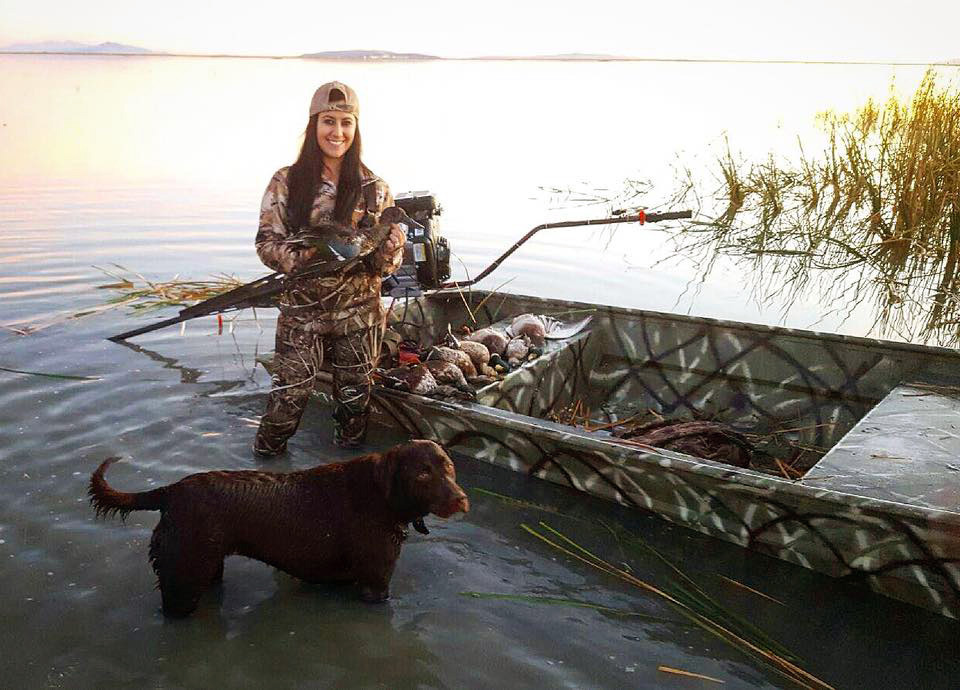It’s almost time to hunt ducks in Utah. The state’s waterfowl hunt starts Oct. 6 in the Northern Hunting Zone.
SALT LAKE CITY — Hunting season is fast approaching, and Utah is one of the best places to hunt in the country with various wildlife to harvest. Utah Division of Wildlife Resources wants all hunters to know the laws that can keep them safe and out of trouble.

Here are some of the more common infractions made by hunters, but there are more and hunters need to pay learn and pay attention to them.
DWR conservation officers find that a majority of mistakes they see is people killing wildlife without a valid permit or an expired license. Hunters can correct this by carefully checking their licenses and permits before getting they leave home.
“The best way to stay out of trouble is to review those regulations and also check your permit carefully before you go out in the field,” DWR Capt. Wyatt Bubak said. “It’s shocking how many people go hunting without even opening their envelope to see what permit they drew. They often don’t check their permit until after they have harvested an animal, and then finally discover that they hunted in the wrong unit or season, or sometimes for the wrong species.”
New hunters must take hunter education or participate in Utah’s Trial Hunting Program to obtain a hunting license in Utah. Some species need additional hunting permits. Next DWR recommends reading and become familiar with the specific laws in the guidebook for the species you are hunting. Also make sure to carefully check the permit for the season, species and unit allowed for the hunt.
Hunting on private property requires written permission from the landowner in advance. Trespassing can result in fines and a class B misdemeanor. When hunting on private property, be respectful and close any gates that you open and don’t cut or alter any fences in order to get to an area. And don’t leave any garbage on the landowners property.
“There are hunting unit boundaries and fish limits for a reason,” Bubak said. “These things help us manage various wildlife species according to specific plans and to maintain healthy populations for each area or waterbody. If we don’t enforce the boundary or limits, our management plans don’t work as well.”
There are a lot of resources available on the DWR website, including the Utah Hunting and Fishing app (which can store your licenses electronically), maps to the hunting boundaries and popular fishing spots, and guidebooks that detail Utah’s hunting and fishing laws.
“If people have additional questions or concerns about the law, they can also call one of our DWR offices and talk to a conservation officer,” Bubak said.
Another common mistake that DWR conservation officers encounter is when a hunter mistakenly shoots the wrong animal. One great way to prevent that is to be sure of your target before taking the shot.
“Never take that shot if you aren’t absolutely sure and confident of your target and what is beyond your target, including if there are roads or buildings in the area,” Bubak said. “That will help prevent you from shooting a doe deer when you have a permit for a buck deer.”
Animals don’t always drop right after they are hit. There have seen instances where someone took a shot and thought they missed, so they fired at another animal in the group.
“By the time they finish shooting, there are five dead elk, instead of just one,” Bubak said. “It’s so important to be educated about these animals and what you are doing before you go out into the field.”
Some landowners and hunters get into a dispute when a deer shot on public property runs onto private property and dies on the landowner’s private property.

“If you choose to hunt so close to the boundary that the animal may jump the fence or cross that boundary line, then you need to prepare in advance for that possibility,” Bubak said. “You can’t just cross onto that private property and retrieve the deer. You need to immediately contact the landowner and request permission to recover the animal or contact DWR law enforcement. Otherwise, you are trespassing, which is illegal and can lead to conflicts with the landowner.”
Anyone who camps or hikes in Utah’s outdoors, whether hunting or not, should always leave a clean campsite, thoroughly extinguish any campfires and remove all trash or waste from the area, including shell casings. And, if there are other hunters or campers in the area, remember to show them the same courtesy and respect you’d hope to receive.
There are more resources for hunters and fishermen at wildlife.utah.gov

